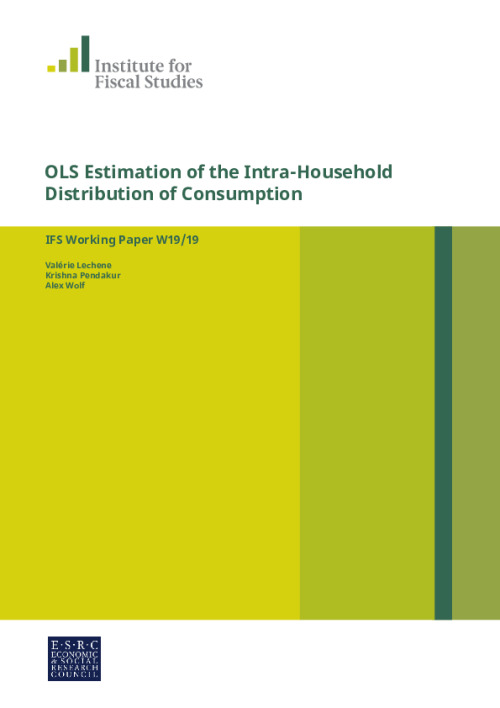Individuals may be poor even if their household is not poor, because the intra-household distribution of resources may be unequal. We develop a model wherein the resource share of each person in a collective household - defined as their share of household consumption - may be estimated by simple linear regressions using off-the-shelf consumer expenditure micro-data. The model is a linear approximation of Dunbar, Lewbel and Pendakur (2013), whose nonlinear structural model can be computationally difficult. Our model allows for complex household types, including those with multiple adult men and/or women and single parent households. We also provide a simple linear pre-test to check for model identification.
Resource shares are obtained as nonlinear functions of estimated coefficients from OLS regressions. We apply the model to data from 12 countries, and investigate resource shares, gender gaps and individual poverty. We find that equal sharing - the implicit assumption underlying household-level poverty calculations - is always rejected. We also find evidence of large gender gaps in resource shares, and consequently in poverty rates, in a few countries.











